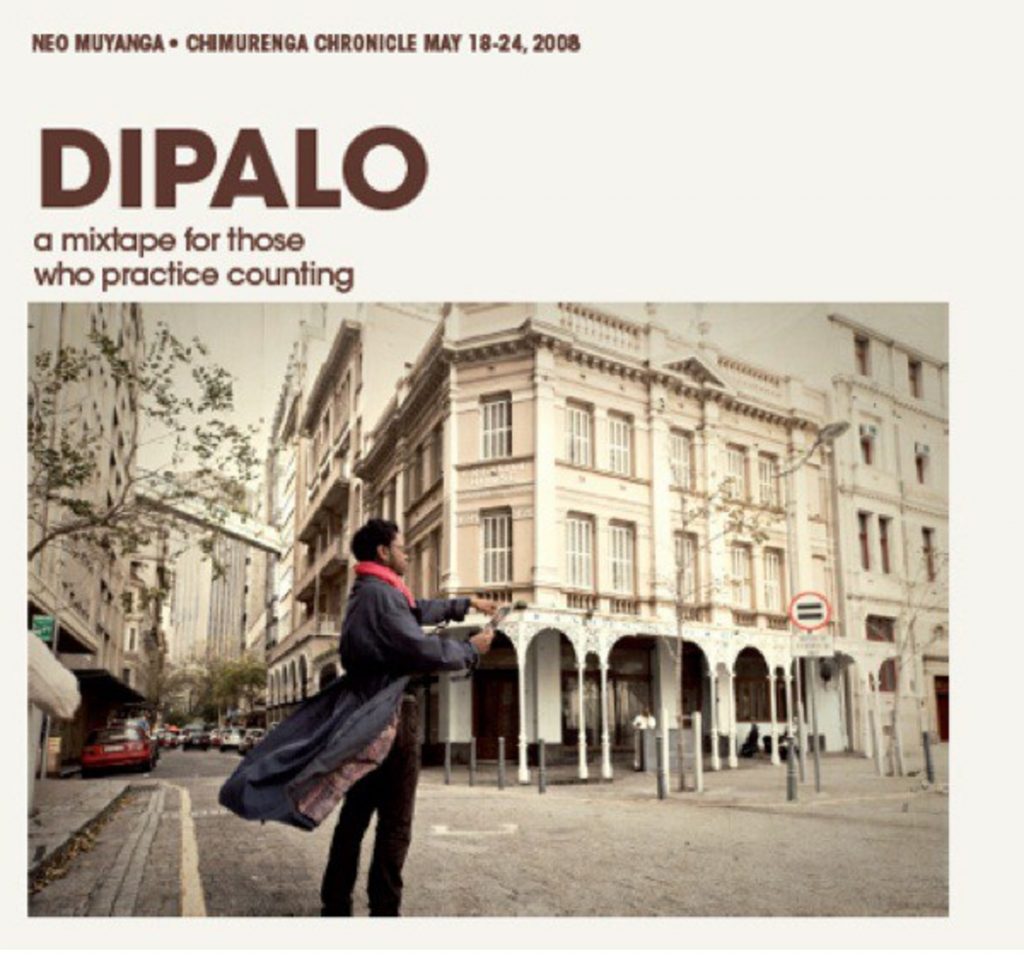Composed, arranged and performed by Neo Muyanga, this audio cd supplement was part of the Chimurenga Chronicle (October 2011) , a speculative newspaper which is issue 16 of Chimurenga.

Tracklist:
a) 1+1= (a re-composition of a 5000-year-old offering to Lord Ganesha, the Hindu deity, an opener of sorts)
b) 4:7 (heaven’s on the ocean is a proportional refrain on reaching nirvana, the 7th grade, via the mundane material world)
c) 3sin= rθ (sino projection technology theme)
d) 3(x)n (illegal border crossing and migration theme. composed for dancers)
e) e=mcx \rightarrow \infty (a true story about an explosive riot day with SADF soldiers who attacked Soweto on June 16th, 1985. Composed for those who got hurt)
f) ƒ:X→Y (horizon heart aflame. Composed for a lover)
g) (a summing of random themes theme)
h) 4x+2 (the 2 or 4 step theme)
i) y~ 6/8 (a travelling theme in 6 parts over eight. Composed for puppets)
j) y\ge \!\, 6/8 (a running theme in 6 parts over 8 )
k) 1/4° (a kota bread theme. Composed for skolies and thieves)
l) (a perpetual circle. Composed for an apartheid-era multi-racial soccer club)
At Penpoint, African Literatures, Postcolonial Studies, and the Cold War by Monica Popescu (Duke University Press, 2020)
At Penpoint, African Literatures, Postcolonial Studies, and the Cold War by Monica Popescu (Duke University Press, 2020)
In At Penpoint Monica Popescu traces the development of African literature during the second half of the twentieth century to address the intertwined effects of the Cold War and decolonization on literary history. Popescu draws on archival materials from the Soviet-sponsored Afro-Asian Writers Association and the CIA-funded Congress for Cultural Freedom alongside considerations of canonical literary works by Ayi Kwei Armah, Ngugi wa Thiong'o, Ousmane Sembène, Pepetela, Nadine Gordimer, and others. She outlines how the tensions between the United States and the Soviet Union played out in the aesthetic and political debates among African writers and intellectuals. These writers decolonized aesthetic canons even as superpowers attempted to shape African cultural production in ways that would advance their ideological and geopolitical goals. Placing African literature at the crossroads of postcolonial theory and studies of the Cold War, Popescu provides a new reassessment of African literature, aesthetics, and knowledge production.

